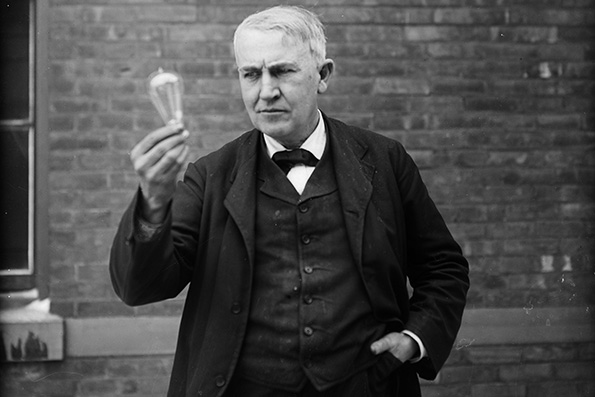Today’s post comes courtesy of Craig Atkinson, vice president of communications and strategic services at The Walsh Group.
What would you do if you lost it all? How would you react? What would you say? Would you break or rise to the occasion with strength you didn’t know you had? Would you become immobilized or spring into action? When we experience a sudden and significant threat, we face a test I like to call an “Edison Moment.”
On December 9, 1914, legendary American businessman and inventor Thomas Edison was sitting down to dinner when a man rushed to his home with news that a large fire was burning at Edison’s Menlo Park, NJ, workshop complex. By the time Edison and his son, Charles, arrived on the scene, almost all the structures, which were filled with combustible materials and chemicals, were ablaze. Edison watched as his huge portions of his life’s work, decades of priceless research, prototypes, and special equipment, burned to ashes before his very eyes. The buildings, which Edison had assumed were fireproof, were grossly underinsured.
Upon seeing the scope of the destruction, Edison’s response might surprise most people. When Charles asked his father, “What should we do?” Edison turned to his son and said with almost childlike wonder, “Go and get your mother and all of her friends. They’ll never see a fire like this again!”
One might assume that Edison, aged sixty-seven at the time, would fall apart or give in upon realizing he had just lost almost everything. Instead, Edison said with a wry smile to his son, “It’s all right. We’ve just got rid of a lot of rubbish.” Edison promised to start rebuilding the next morning and to retain all his employees. He kept his promise. One year later, Thomas Edison Industries was back operating at full speed and chalked up $10 million in revenue.
We have been living through some of the most surreal and distressing months in the history of our country. There is no instruction manual or standard operating procedure for how to feel, what to say, or what to do in an “Edison Moment” like the one we are in now, and that can drive us to despair and hopelessness. I certainly hope we will never see “a fire like this again.” Yet, no matter how difficult it is to remain optimistic, we are called to face this moment with courage, action, and even humor. An “Edison Moment” reminds us that our resilience springs from our deep interconnectedness and our unlimited capacity to grow, learn and renew.



